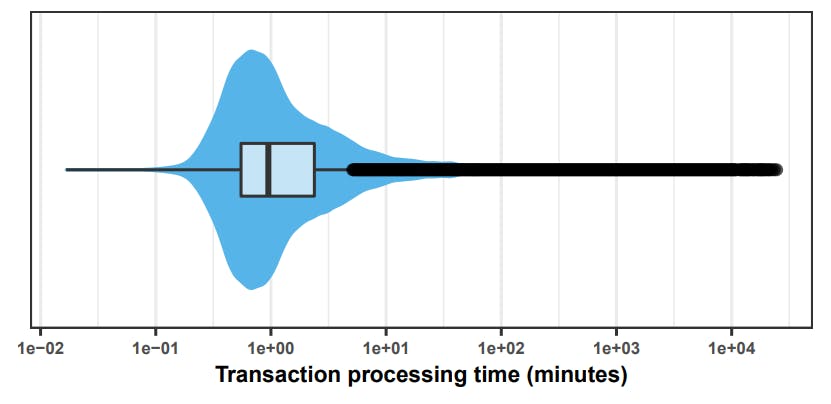Hackernoon
1M
383

Image Credit: Hackernoon
How Fast Are Ethereum Transactions, Really?
- Ethereum transactions are crucial for developers of blockchain-powered applications, known as ÐApps, for translating requests into smart contract transactions, with transaction speed linked to gas price paid.
- The study quantifies Ethereum transaction processing times, showing a median of 57 seconds with 90% processed within 8 minutes, indicating that higher gas prices result in faster processing times with diminishing returns.
- Accuracy of estimation services like Etherscan and EthGasStation varies, with Etherscan most accurate for cheap transactions and EthGasStation for regular, expensive, and very expensive ones.
- A linear regression model with one feature outperforms existing models for cheap transactions, aiding developers in making informed gas price decisions.
- Blockchain's transformative potential has led to high demand for blockchain expertise, as programmable blockchains like Ethereum host smart contracts and enable decentralized applications (ÐApps).
- Transaction processing times in Ethereum are influenced by gas price, blockchain workload, and miner nodes; appropriate gas price selection is crucial for balancing cost and user experience.
- Services like Etherscan and EthGasStation provide real-time estimates of processing times based on gas prices but lack clarity on internal workings, highlighting the need for empirical investigation.
- Developing accurate transaction processing time estimation models and insights into Ethereum transactions support developers in optimizing gas price choices for improved end-user experience.
- The study contributes by providing transaction processing time characterization, accuracy assessment of estimation services, and developing a model surpassing existing services' performance.
- The research aids ÐApp developers in decision-making regarding gas prices, and data analysis on Ethereum processing times offers valuable insights for those considering applications on this platform.
- The paper's structure includes sections on key concepts, motivating examples, transaction time computation, data collection, research findings, implications, related work, and conclusion.
Read Full Article
23 Likes
For uninterrupted reading, download the app